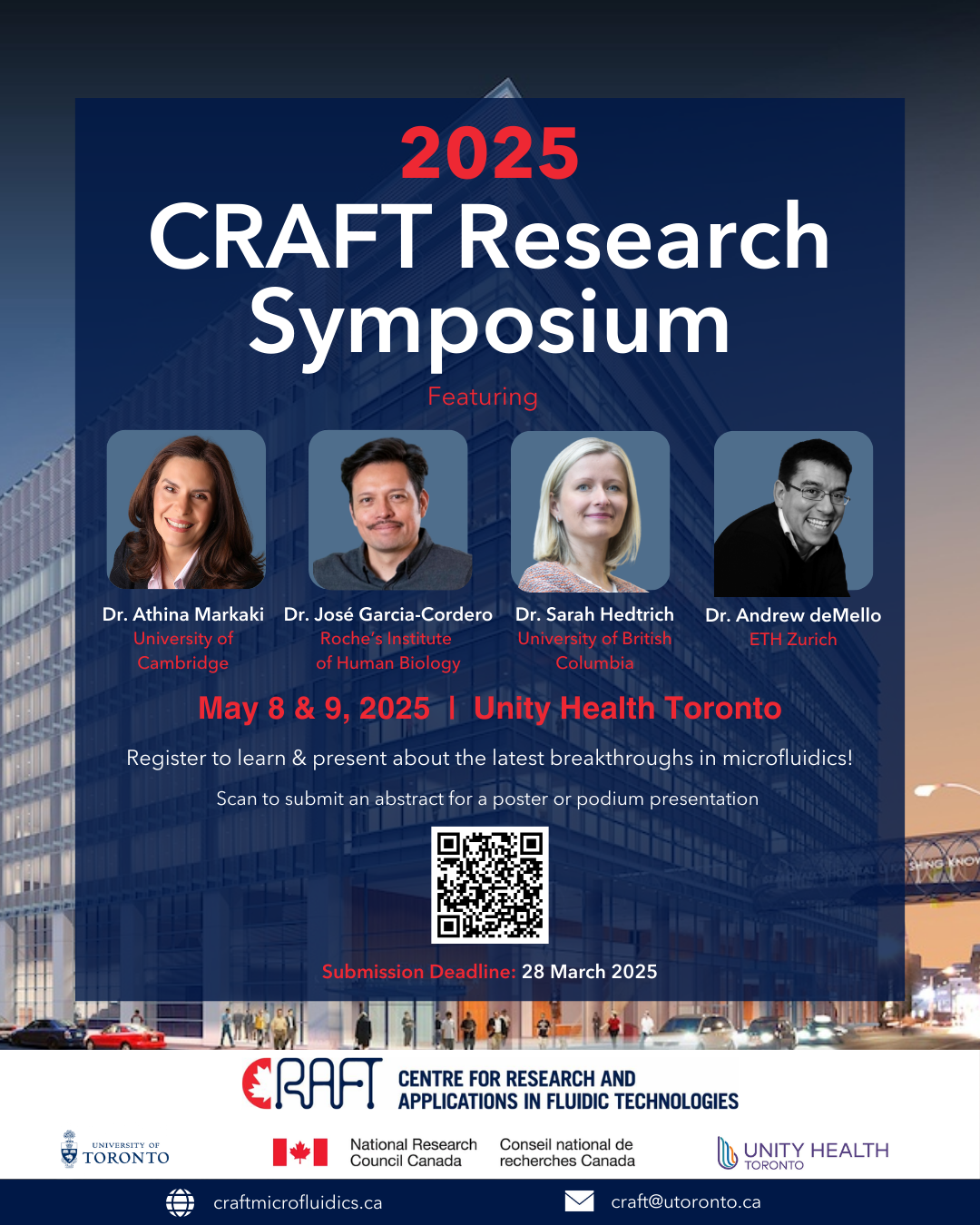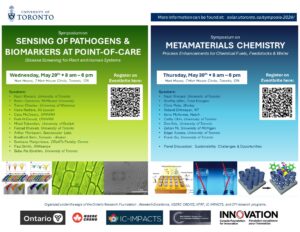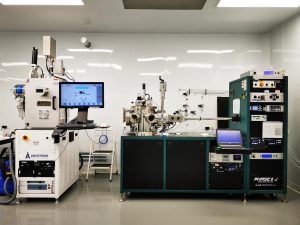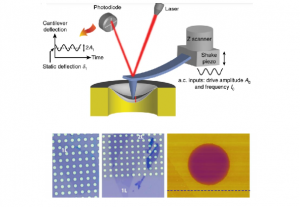| Dear microfluidics enthusiasts,
The abstract submission deadline is fast approaching. Please submit abstracts at the link below by March 28th! Please also find an updated poster of the event below. We invite submissions for podium presentations and posters in a microfluidics-related field. 🔹 Registration Link
Please ensure you’ve registered for the symposium by March 28th if you submit an abstract. For more information or any questions, please reach out to us at CRAFT@utoronto.ca. We look forward to your contributions and hope to see you at the 2025 CRAFT Research Symposium!
|
Author: Admin
University of Toronto Core Facilities Showcase – Oct. 10 2024
U of T Core Facilities Showcase
We’re excited to announce the inaugural University of Toronto Core Facilities Showcase taking place on October 10, 2024 from 11AM to 2PM.
Join us as we highlight the cutting-edge research capabilities of the university’s research facilities. Speak with facility personnel to discover how these cores are driving innovation and can help your research.
This event is perfect for researchers, graduate students, industry partners, and anyone interested in the forefront of research technology and methodology.
Event Type: Workshop/Seminar
Program: CRIS
Date/Time: Thu Oct 10, 2024 at 11:00 AM to 2:00 PM
Attendance Type: In-person
Location:
Name: David Naylor Student Commons Address: Medical Sciences Building 1 King's College Circle, St. George Campus Toronto ON M5S 1A8
Description: We’re excited to announce the inaugural University of Toronto Core Facilities Showcase taking place on October 10, 2024 from 11AM to 2PM.
Join us as we highlight the cutting-edge research capabilities of the university’s research facilities. Speak with facility personnel to discover how these cores are driving innovation and can help your research.
This event is perfect for researchers, graduate students, industry partners, and anyone interested in the forefront of research technology and methodology.
Learning Outcomes:
– Get insights on the diverse range of state-of-the-art equipment and resources available at the University of Toronto.
– Connect directly with facility personnel for answers about facility services and capabilities.
– Complimentary refreshments* and a chance to win prizes.
Additional Information:
*Refreshments available for those that register by October 4th.
Registration Window: Wed Aug 07, 2024 at 9:00 AM – Fri Oct 04, 2024 at 11:00 PM
Attendee Types: Everyone
Event Info from TNFC User – Professor Kherani on May 29th and May 30th at Hart House
Professor Kherani and the Advanced Photonics-Photovoltaics & Devices (AP2D) Lab are organizing two symposia on May 29th and May 30th at Hart House.
The topics of the two days are:
- Symposium on Sensing of Pathogens and Biomarkers at PoC on Wednesday, May 29th, and
- Symposium on Metamaterials Chemistry on Thursday, May 30th
More information can be found on the event website here: https://solar.utoronto.ca/symposia-2024/
Eventbrite registration links for the two days are copied below:
- https://www.eventbrite.ca/e/symposium-on-sensing-of-pathogens-biomarkers-at-point-of-care-tickets-894092965127
- https://www.eventbrite.ca/e/symposium-on-metamaterial-chemistry-tickets-895705468167
The symposia will host leading speakers from both academia and industry, leading to a nexus of views and perspectives on challenges and opportunities in the respective disciplines.
Unveiling the Future of Nanotech: TNFC Reopening Celebration
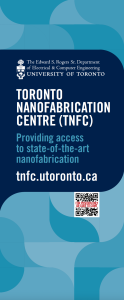 We are delighted to share the exciting news that the grand reopening celebration of the TNFC is just around the corner, scheduled for Wednesday, November 1, 2023. The event will take place on the picturesque grounds of the University of Toronto’s St. George Campus.
We are delighted to share the exciting news that the grand reopening celebration of the TNFC is just around the corner, scheduled for Wednesday, November 1, 2023. The event will take place on the picturesque grounds of the University of Toronto’s St. George Campus.
The TNFC, known as the Toronto Nanofabrication Centre, stands as a pioneering prototype development and testing hub that welcomes researchers from both academic and industrial backgrounds. This remarkable facility is equipped with cutting-edge micro/nanotech cleanroom amenities, including:
-
- State-of-the-art electron-beam nanolithography tool
- Multiple high-end deposition and plasma etching systems
- Advanced photolithography tools
- Well-equipped wet processing stations
- Comprehensive microscopic inspection and packaging tools
TNFC’s Pratt Cleanroom Renovation
CoventorWare and MEMS+ Training
Dear TNFC Users,
We would like to inform you that CMC Microsystems and Lam Research will be hosting a four-day online CoventorWare & MEMS+ training. Dates for the training are May 17, 21, 24, and 28.
Registration info for the training can be found here: https://www.cmc.ca/coventormp-and-mems-training/
Thank you,
The TNFC Team
User Publication: Tobin Filleter Group, Fatigue of Graphene – Nature Materials
Tobin Filleter Group
Fatigue of Graphene
Nature Materials
Teng Cui, Sankha Mukherjee, Parambath M. Sudeep, Guillaume Colas, Farzin Najafi, Jason Tam, Pulickel M. Ajayan, Chandra Veer Singh, Yu Sun & Tobin Filleter
https://www.nature.com/articles/s41563-019-0586-y?proof=t
The main facilities/techniques used in this work include e-beam lithography, RIE, oxygen plasma Asher.
This paper reports the first experimental fatigue study of freestanding graphene. Freestanding graphene was prepared by exfoliation of graphite onto a SiO2/Si substrate with arrays of microfabricated circular cavities. The microcavities were fabricated by e-beam lithography patterning followed by reactive ion etching. The fatigue loading was achieved by a modified atomic force microscopy-based method to apply a combined static and cyclic force on the suspended graphene. It was discovered that graphene can survive more than one billion cycles of loading under large stress levels, e.g., 71 GPa mean stress with 5.6 GPa stress range. Fatigue failure of monolayer graphene was found to fail in a global and catastrophic manner without any obvious progressive damage, which differs from conventional fatigue mechanisms at the macroscale. Conversely, graphene oxide exhibited a localized and progressive damage behavior due to the crack-arresting mechanism of the functional groups. This work not only provides fundamental insights into the fatigue enhancement behaviour of graphene- embedded nanocomposites, but also serves as a starting point for the dynamic reliability evaluation of other 2D materials.
Nortel Institute Undergraduate Scholarship Winners for 2020-2021 Academic Year
The Nortel Institute Undergraduate Scholarship, with an approximate value of $5,000, is awarded to undergraduate students in second or third year in the Faculty of Applied Science and Engineering, the Faculty of Arts and Science, University of Toronto Mississauga and University of Toronto Scarborough. Candidates are considered on the basis of financial need, academic merit (minimum CGPA of 3.0) and an essay.
Winners for the 2020-2021 Academic Year:
1. Seema Kharab (3rd Year, Biotechnology)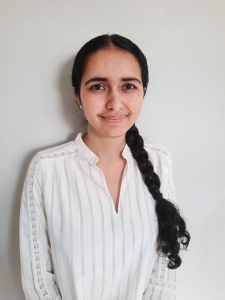
2. Ryan Ghosh (2nd Year, Computer Engineering)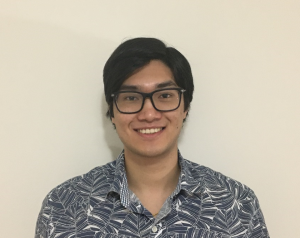
3. Yazan Zamel (3rd Year, Engineering Science)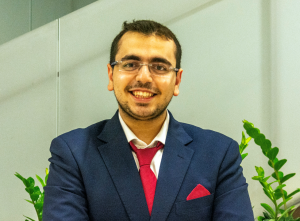
Wallberg Nanolithography Facility – Now Open (July 2020)
As many with the TNFC research community already know, the TNFC Pratt Microfabrication Facility is undergoing renovations throughout 2020-2021, and the TNFC Bahen Prototyping Facility is now closed, and under renovation as part of the new CRAFT facility.
However, as research activities resume on campus, we would like to take the opportunity to welcome all users back to the TNFC Wallberg Nanolithography Facility, which is now open for electron-beam lithography jobs.
As part of this re-opening, and in addition to the University of Toronto Guidelines for Reopening Research Spaces, the TNFC Wallberg Nanolithography Facility will be implementing a few special rules moving forward, including:
- Users must use all available PPE including face masks and goggles inside the facility.
- Only one (1) user at a time will be allowed inside the facility. If a user comes to use the facility and finds another user inside, the incoming user must wait until the facility is vacant.
- Every piece of equipment must be booked prior to using it.
- Users must avoid any in-person communication with TNFC Technical Staff, except for scheduled training. The preferred communication channels are e-mail or phone.
- During the e-beam runs, users will not be allowed to stay inside the cleanroom.
We are implementing these rules for the health and safety of all of our research community, including both students and staff, and we look forward to working with you soon!

